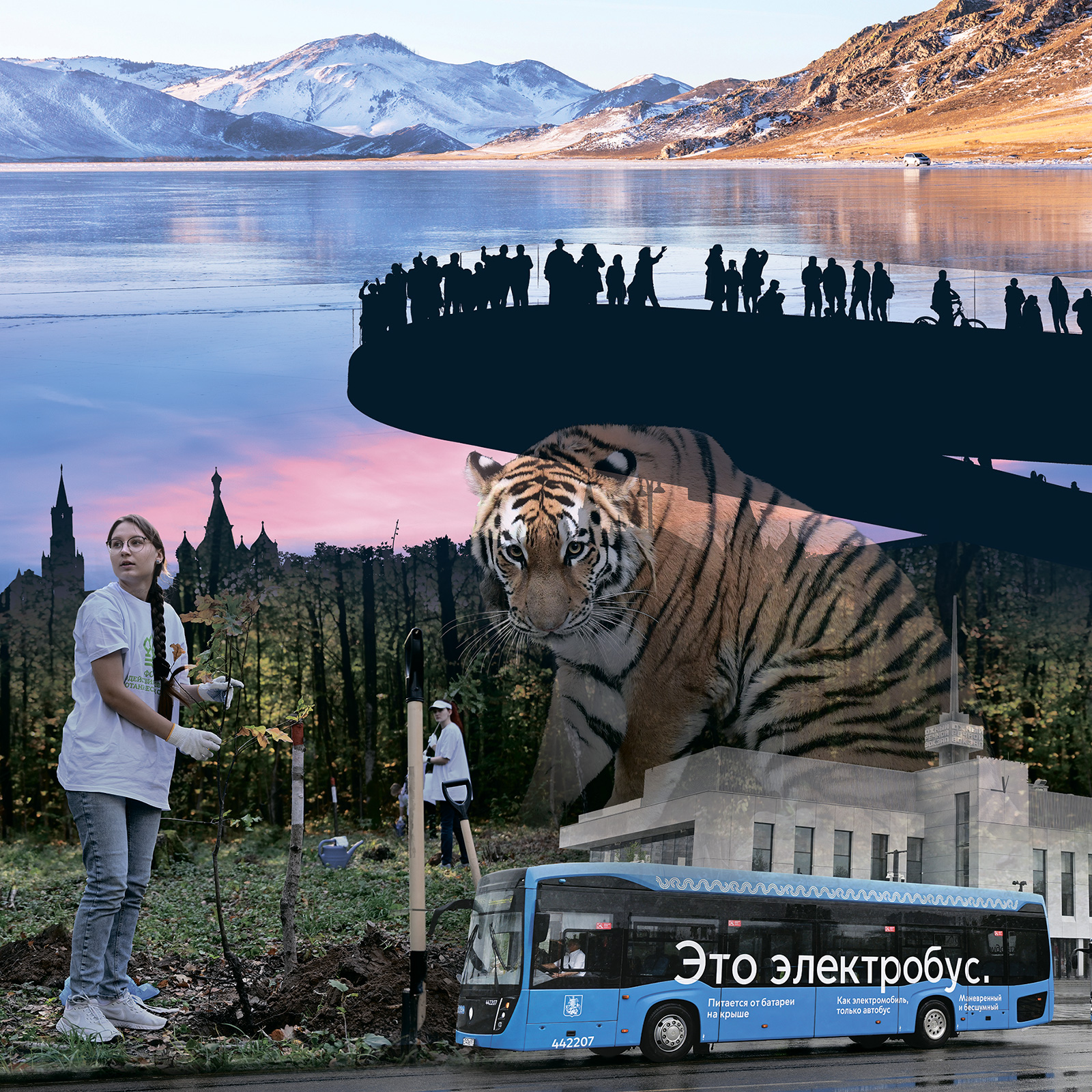
The effective implementation of the provisions of the sustainable development concept231 is designed to make up a balance between increasing the economic growth of the state and addressing issues in social protection, healthcare, education, and environmental protection to meet the ongoing needs of modern society as well as for the benefit of future generations of Russian citizens.
Russians’ assessment of the importance of implementing sustainable development goals in their home regions
Which of the following areas do you see as most relevant to Sustainable Development Goals (ESG) projects and programs in your region? Select three options (closed-ended question, up to three answers, % of all respondents)
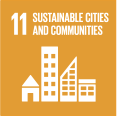 62%
62%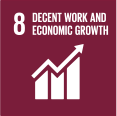 61%
61% 45%
45%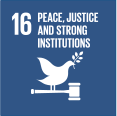 40%
40%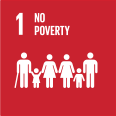 32%
32%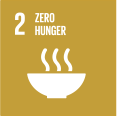 32%
32%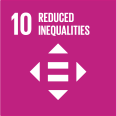 30%
30%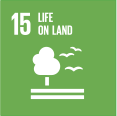 27%
27%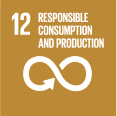 26%
26%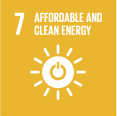 25%
25%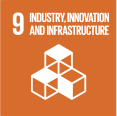 21%
21%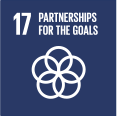 18%
18%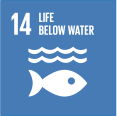 17%
17%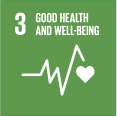 10%
10%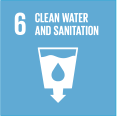 10%
10%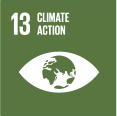 9%
9%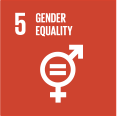 4%
4%5.1Sustainable development as a major factor in a country’s economic growth
In recent years, the global climate agenda is increasingly growing into a tool for achieving geopolitical and economic goals rather than a fledged response to the global warming challenges.232 Amidst the ongoing conditions, preventing the imposition of methods that are unacceptable for Russia in tackling environmental problems is of particular importance, which is possible if our country achieves a leading position in the global climate agenda and carbon neutrality issues.233
In 2023, Russia pursued its consistent heading towards sustainable development and the transition to a low-carbon economy based on the priority areas identified by the Russian President.
In October 2023, a new edition of the Climate Doctrine of the Russian Federation was approved. It was the first to declare the goal of achieving carbon neutrality by 2060.234 The principles of Russia’s climate policy include the updated document also identifies “balanced actions to achieve sustainable development” and “technological neutrality.”
In addition, 2023 marked the approval of a new comprehensive program to enhance the energy efficiency of the Russian economy until 2035,235 aimed at achieving the goal of achieving carbon neutrality by 2060236 as well as at developing technologies for recycling and absorbing accumulated greenhouse gases.
66 Russian regions* have approved plans for climate change adaptation.237
In 9 regions regional adaptation plans are currently at the stage of development or approval
* As of December 2023.
This program is directly related to improving the quality of life of Russian citizens,238 including by reducing the air pollution level.
Serious success in reducing the level of air pollution in the Russian regions was achieved due to the implementation of the “Clean Air federal” and the “Ecology” national projects.
Despite the positive feedback on the project, there are still cases of violation of requirements in atmospheric air protection by individual entities. In this regard, the bill239 elaborated in pursuance of the Executive Order of the President of the Russian Federation,240 the provisions of which provide for administrative liability for failure to achieve established quotas for emissions of pollutants into the atmospheric air, acquires particular relevance and significance.
The “Clean Air”241 federal project has been implemented since 2019 in 12 major industrial centers throughout the country.
By the end of 2022, the emissions of pollutants into the atmosphere decreased by 11% compared to the 2017 level instead of the planned 8%.
From September 1, 2023, 29 more cities experiencing high and extremely high levels of pollution joined the federal “Clean Air” project.242
A public discussion of the bill took place in the Civic Chamber in February 2023. The public examination participants expressed support for the bill provisions, and also made a number of proposals for its improvement in terms of changing the approach to calculating the amount of the turnover fine and its differentiation depending on the nature of the offense committed and its consequences. A number of proposals from the Civic Chamber were further taken into consideration by the Russian Ministry of Natural Resources, and the bill was approved by the Government Legislative Commission.243
When building up long-run plans to achieve carbon neutrality, it is important ensure an equitable treatment on footprint of different types of generation.244 Solar farms and wind farms are often mentioned in discussions about the transition to clean energy, with the carbon footprint of solar power, according to research, being four times higher than nuclear power, a generation footprint that is almost zero.
Nuclear energy is one of the most environmentally friendly (low-carbon), cost- effective and compact energy sources that can be used in isolated and hard-to- reach areas to tackle the challenges of providing electricity to populated areas as well as to industrial enterprises for the extraction and exploitation of natural resources.245
The nuclear power industry in Russia accounts for20% of the total electricity generation in the country.246
The progress of the pilot project of a ground- based nuclear power plant based on the RITM-200N reactor plant in the Republic of Sakha (Yakutia), as well as the safety and potential of low-power nuclear power plants (LNPs) for the development of hard-to-reach territories of the Russian Federation were the subject of discussion by experts of the Civic Chamber247 at round tables, held in May 2023 at the Civic Chamber and in August 2023 as part of the “Community” forum in Yakutsk.248
Attaching public attention to this issue is important, since work is currently underway to establish a completely carbon-free Kyuchus cluster of solid mineral deposits in the Republic of Sakha (Yakutia) using electricity from the capacities of ASMM.249 It is expected that the nuclear power plant, built near the village of Ust-Kuiga in the Ust-Yansky district of the Republic of Sakha (Yakutia), will allow the development of the largest deposits of gold, tin, and rare earth metals in the Yana basin to begin.
Amidst the ongoing geopolitical situation, an important role is played by assessing the risks of the new conditions of global climate policy, without which significant rule-making initiatives may cause resistance from both Russian business and the public.
The lack of an objective perception of the climate agenda by society and its identification with environmental protection issues often leads to international environmental organizations “inflating” initiatives aimed at tackling local environmental challenges to the scale of a global catastrophe, while issues of the country’s development and the well-being of citizens remain outside the scope society’s field of view.
An objective assessment of ongoing changes in the global climate agenda and adequate perception of them by society is facilitated by ensuring transparency of the activities of economic entities and their disclosure of information about its impact on the environment and other aspects of citizens’ lives. Under these circumstances, the issues of developing internal methods and standards for disclosing nonfinancial reporting come to the fore.
In February 2023, a discussion of the report of the Central Bank of Russia “Model Methodology for ESG Ratings” took place at the Civic Chamber,250 during which experts assessed the current state of the ESG ratings market, its problems and ways to solve them.251
According to IPCC data,252СО2 emissions for the production of 1 kWh of electrical energy from a nuclear power plant are ~ 12grams per kilowatt-hour.
Comparatively speaking, CO2 emissions for the production of 1 kWh of electrical energy from other generation sources are:
of gas power plant (grams per kilowatt-hour)
of coal power plant (grams per kilowatt-hour)
of hydroelectric power (grams per kilowatt-hour)
of onshore wind farm (grams per kilowatt-hour)
of solar power plant based on photovoltaic cells (grams per kilowatt-hour)
The current problems of disclosing the real sector of the economy of information on the impact on the environment and other nonfinancial information by companies also became the subject of discussion among experts during the round table “Transparency and reporting of business – the foundation of the country’s environmental security.”
A major practical result of the issues discussed in 2023 was the public certification at the Civic Chamber of sustainable development reports for 2022 of the “Lenta”253 and “Severstal”254 companies.
5.2Quality education in promoting sustainable development
The course taken by the Russian Federation to achieve the Sustainable Development Goals255 dictates the need for training qualified specialists focused on the successful implementation of the principles of sustainable development and responsible corporate governance (ESG), including through the development of a system of environmental education and awareness raising, and advanced training of personnel of ensuring environmental safety.256 Major efforts being made by the state and civil society today are aimed at developing environmental education and environmental awareness in our country.
In November 2022, the Russian President approved a list of instructions following a meeting with participants in the youth environmental forum “Ecosystem. Reserved region”.257 A number of these also pertained to environmental education. The systematic implementation of the instructions continued in 2023.
In June 2023, the All-Russian Center for the Study of Public Opinion (VCIOM) presented the results of a survey devoted to ecology.
52% of respondents replied that over the past year they personally or members of their family took measures aimed at reducing the severity of environmental problems; 41% reported the opposite. Compared to 2021 (58%), the environmental activity of Russians has decreased slightly.
Aged 18 to 24 47%
Aged 25 to 34 60%
Aged 35 to 44 61%
Aged 45 to 59 53%
In terms of the level of involvement in environmental practices, 18–24 year olds are inferior to older generations. Environmental activity is lowest among citizens 60 years of age and older (41%).
Environmental awareness is most widespread among Russians after 25 years of age, and, after 60 years of age, it declines.
Source: VCIOM // Eco-activism: involvement, motivation, potentialIn May 2023, backed up by the Head of State, the All-Russian Environmental Public Movement “Ecosystem” was launched in Russia, designed to form ecological thinking among young people through love for the Fatherland and a responsible attitude towards nature.258
From June 3 to June 12, 2023, the “Ecosystem” movement organized and conducted a series of environmental events, the “Green Deeds Marathon”, in all 89 regions of Russia:259
-
In the face-to-face format the marathon was supported by at least 150 thousand people
-
Hundreds of thousands of residents across the country connected to various online activities on environmental issues;
-
The marathon hosted over 1,500 events
The environmental education of the younger generation was facilitated by the holding of the All-Russian Youth Environmental Forum “Ecosystem” in August 2023. The main goal and mission of the forum was the formation and consolidation of youth proposals in ecology for their further implementation into all-Russian practice.
The Russian movement of children and youth “Movement of the First” has also embarked on executing the instructions of the Russian President, having previously launched the All-Russian project “In touch with nature”.260 As part of the project, it is planned to involve children and youth in the creation of environmental teams in educational organizations and conduct activities aimed at improving the environmental situation.
All-Russian Youth Environmental Forum “Ecosystem”:
- Performed 300 environmental education events
- 450 people from 89 regions of Russia, 112 volunteers, 90 experts and 243 guests were involved;
- 23 environmental solutions taken
- 9 environmental projects were recommended to receive 4 million rubles within the framework of the “Rosmolodezh.Grants” competition;
- The concept of the Yunnat (young naturalist) movement was developed;
- 23 thematic clubs were formed;
- The educational program of the Knowledge.Lectures hosted by the Russian Society “Knowledge” was implemented.261
More than 5 ths. environmental groups are planned to be formed by “Movement of the First” representatives by the end of the yearover 100 ths. schoolchildren and students to be involved in environmental activities.262
The Ecosophy project of the presidential platform “Russia — A Country of Opportunities” is aimed at developing the ecological culture of the country’s population. The project is geared to create conditions for the self-realization of people who lead an environmentally friendly lifestyle, who are passionate about smart consumption and who are ready to become leaders of public opinion in the field of environmental culture, as well as for specialists in the field of ecology and sustainable development.
“Ecosophy” project
~ 93 ths. people were involved in the first season of the “Ecosophy” project, which ran from June 6, 2022 to August 31, 2023.
140 people made it to the final
On July 29, 2023, as part of the grand final in Nizhny Novgorod, 22 winners and 15 EcoLeaders were awarded — these were active people promoting an environmentally friendly lifestyle by their example, ready to become leaders in changing the culture of consumer behavior and creating useful environmental habits and skills among Russian residents.263
A whole range of issues related to environmental education were actively discussed at the Civic Chamber in 2023. Experts united their views, exchanged ideas for the growth of this field of endeavor across the nation, and submitted proposals to the appropriate ministries and departments for review.
Based on the results of one of these discussions dedicated to the topic “Ecological culture: what is the social benefit?” experts identified existing barriers and ways to overcome them to solve the problem of building a system of continuous environmental education and awareness in Russia.264
Significant barriers preventing the formation of an environmental culture and the establishment of an effective system of environmental education and awareness are:
- Lack of a unified methodological base in environmental education and awareness;
- Misinterpretation of the aims and purposes of environmental education and awareness as a result of the conceptual framework’s lack of consistency in this field;
- Lack of target indicators for a developed environmental culture as an integral result of environmental education and enlightenment;
- Lack of regulatory requirements for specialists in sustainable development, responsible corporate governance, ecology, and environmental protection;
- Lack of a single coordinating body for the creation and functioning of a system of continuous environmental education and awareness in the Russian Federation.
Removing these barriers is seen in the implementation of the following measures:
- Legislative consolidation of the definition of the terms “environmental education”, “environmental education”, and “ecological culture”;
- Legislative consolidation of requirements for the organization and provision of environmental education and awareness, establishment at the legislative level of mechanisms for the implementation of environmental education and awareness, the formation of an environmental culture, as well as identification of responsible persons. The establishment of a single coordinating body for the creation and operation of a system of continuous environmental education and awareness in Russia;
- The elaboration of professional standards for specialists in the field of sustainable development and responsible corporate governance; and
- The establishment of a methodological base as part of environmental education and enlightenment.
5.3Sustainable cities and communities
The appeal of a city or town depends primarily on the level of comfort of the living conditions there. In this regard, the task of creating a comfortable and accessible environment, which, in turn, determines the socioeconomic level of development and the degree of civic activity in the settlements as well as in the region as a whole takes on major importance.
The key condition for the formation of a comfortable urban environment is the direct participation of citizens in the improvement process. The practice of voting, which allows city dwellers to select particular areas for the application of development projects, demonstrates that people are actively involved in changes and understand their significance and role in resolving territorial development issues and fostering a positive environment around them.
The Civic Chamber commonly addresses issues of establishing a comfortable urban environment and involving residents of territories in this process. The above topics have repeatedly become the subject of discussion within the framework of regional “Community” forums.265
Experts from the Civic Chamber attach particular attention to the issues of ensuring an accessible environment for people with limited mobility, including increasing the accessibility of the voting procedure and respecting the electoral rights of citizens with disabilities and limited health capabilities.
The first all-Russian vote on improvement issues took place in 2021.
Over 3 years, the number of voting participants increased by 4.5 million people and reached 14.2 million266
Involving citizens in issues of urban development has become a key condition for the implementation of the federal project “Establishing a comfortable urban environment” as part of the national project “Housing and Urban Environment.”267 The project aims to enhance the quality of the urban environment by 2030by 1.5 times, and further increase the share of Russian cities with a favorable environment to 80%.268
Based on the results of public observation of voting during a single voting day in 2023, experts from the Civic Chamber generally noted improvements in the accessibility of voting premises for people with disabilities, highlighting a number of issues that need to be addressed, including the lack of ramps and elevators at individual polling stations, which creates additional difficulties for the exercise of voting rights by citizens with limited mobility.269
The state program “Accessible Environment” has been implemented in Russia for several years, aiming to tackle accessibility problems for people with disabilities.
In 2023, nearly 70 billion rubles, have been allocated for the implementation of the “Accessible Environment” program, including subsidies from the federal budget for the activities of all-Russian associations of disabled people.270
The construction of housing in cities is currently accompanied by the creation of infrastructure for children, including playgrounds. The growing number of cases of injuries to children at such facilities today is causing concern on the part of the state and society.271
Based on expert report from the All-Russia People’s Front, hundreds of accidents occur on playgrounds every year.
More than 70% of children’s infrastructure facilities built from 2018 to 2021 as part of the federal project “Formation of a Comfortable Urban Environment” currently require major repairs.272
To address this problem, in January 2023, following the results of an event on the topic “Safety in Playgrounds: Playgrounds as Part of the Urban Environment,” a number of recommendations were formed in the Civic Chamber with the participation of the expert community, the implementation of which will ensure the safety of children on playgrounds. The document was sent to the relevant ministries and departments for consideration.273
The Civic Chamber proposals to ensure the safety of children on playgrounds (given in abbreviated form):
- Establishing a working group to develop a unified procedure for putting a playground into operation, containing a minimum list of mandatory requirements, with the participation of experts, scientists, specialists, ad-hoc public associations, and relevant government bodies;
- Consolidation of the concept “Children’s playground certificate” as part of the national standardization system and specification of the requirements for this document; and
- Introducing changes to the Russian legal system that would allow Rosstandart to exercise federal state control (supervision) over the execution of the laws requiring children’s playgrounds to be safe in compliance with the Eurasian Economic Union’s technical guidelines “On the Safety of Equipment for Children’s Playgrounds”.
A vital aspect in organizing a comfortable environment is the city’s transport network. Advanced public transport system, convenient and understandable routes for citizens are a necessary condition for the development of any Russian region, help maintain a high quality of life for citizens and ensure their safety.
Public transport in the regions is being updated using funds from the federal project “Development of Public Transport” and the national project “Safe Quality Roads”. In 2023, 383 units of the new rolling stock arrived in 13 metropolitan areas.274
The development of transport infrastructure is facilitated by the program of infrastructure budget loans. As part of this program, starting 2022, the regions have already received 1,134 units of public transport.275
To create a comfortable transport network in the regions, a preferential bus leasing program was launched in 2023 through the State Transport Leasing Company using funds from the National Wealth Fund (NWF).
44 billion rubles from the National Wealth Fund and 29 billion rubles from extra-budgetary sources – with this money 4,130 vehicles will be purchased in 2023–2024276
The Civic Chamber, for its part, in 2023 continued to exercise public oversight of transport infrastructure in the regions as part of the regional “Community” forums. The result of such inspections is the development of recommendations to government authorities to improve the operating conditions of the transport system, taking into account the selected positive experience of different regions of Russia.277.1, 277.2
The presence of comfortable living conditions and developed infrastructure play a decisive role in the development of rural settlements.
According to statistics, over the past 10 years in Russia both the number of rural residents and the number of settlements has been declining. Numerous factors influence these processes, including a decline in the birth rate, high rates of mortality, and shorter life expectancies than in urban settlements. However, the most significant factor is the disparity in living standards between urban and rural areas, which is a major driver of the migration of rural populations to more favorable settlements, primarily urban ones.278
According to official data from Rosstat, in 2010, 37.5 million people lived in rural areas;
As of January 1, 2023, the rural population of Russia is 36.7 million people, 25% of the total Russian population.
The Civic Chamber’s experts point out that reversing the current disparities between urban and rural areas is a strategic undertaking that calls for the creation of fresh methods for carrying out state policy in the area of rural development. The solution to this problem seems especially important in ongoing conditions, when great opportunities are unveiling for the development and strengthening of the technological and production leadership of our country.
A systemic socioeconomic analysis should serve as the foundation for any long-term program aimed at developing rural areas. This analysis should identify key factors and directions for the development of rural areas, as well as provide a forecast assessment of the programs’ effectiveness and prospects for implementation.
Promising drivers for the development of rural areas can be ecotourism and the development of small forms of farming. A unique interactive map of the best youth spaces in the village was compiled by young village activists who took part in the week of united actions, the track “Points of Attraction in the Village” of the federal program “Personnel for the Village”.279
Agriculture is the key activity in rural areas that ensures their socioeconomic development. In the current geopolitical situation, experts from the Civic Chamber note the unconditional importance and strategic nature of the sustainable development of rural settlements, agriculture and production as a guarantor of market saturation with food products from domestic producers, which will result in ensuring the country’s food security.
The state provides systematic support for the implementation of socially significant projects aimed at rural areas expansion. As part of the state program “Comprehensive Development of Rural Territories”, citizens living in rural areas can receive a grant to support local initiatives. The opportunity to receive grants is also provided by the Presidential Foundation for Cultural Initiatives, the Presidential Grants Foundation, and the Federal Agency for Youth Affairs (All-Russian Competition of Youth Projects, direction “#develop_ environment”).
Several industry public associations and associations, including AKKOR, “Soyuzmoloko”, Trade Union of Agricultural Workers of the Russian Federation, National Union of Agricultural Insurers, “Potato Union”, and a number of others, along with the state, support the implementation of socially significant projects targeted at the development of rural areas because they recognize the importance and significance of the issues that have been identified.
A survey “Civic Activity in Rural Areas” conducted by the Civic Chamber in the second half of 2023 showed that every second village resident is not only aware of the possibilities of realizing their own interests through mechanisms for carrying out civic activity, but is also involved, to one degree or another, in activities to develop their settlements through participation in various social projects and initiatives aimed at its development. Assessing the results obtained during the survey, experts from the Civic Chamber note the need to further expand the involvement of rural residents in resolving issues of development of the territories in which they live, which is one of the key conditions for achieving the goals of creating a favorable environment in the countryside.
In 2023, a program was launched to train young specialists for the implementation of socially significant projects in rural areas “Personnel for the Village”.280 The program was developed by RURY together with Rosmolodezh, the Ministry of Agriculture of Russia, the Ministry of Education and Science of Russia and the Ministry of Labor of Russia on behalf of the President of the Russian Federation and is aimed at creating space in rural areas for a full life, development and success of young people. The program is being implemented in several key areas, including “Young Rural Entrepreneurs”, “Points of Attraction in Rural Areas”, “Creativity in Rural Areas”, “Village Leaders”, “Rural Development Workshop”, etc.
The program’s events will cover more than 15% of rural areas, and the total audience coverage will exceed2 million people
The formation of a new attractive image of rural areas is impossible without the development of a system for attracting and employing highly qualif ied personnel and young specialists.
In July 2023, VCIOM together with the Russian Union of Rural Youth (RURY) conducted a study on the topic “Attracting Youth to Rural Areas: Problems and Prospects”, the results of which showed that modern Russian youth for the most part do not show interest in rural life (60,8%) and are not ready to move permanently to a rural area.
Today, it takes a combined effort from government agencies at all levels, corporations, nonprofit organizations, and civil society organizations to get young people to relocate to and settle in rural areas. This effort includes developing and implementing communication strategies as well as initiatives to improve the standard of living in rural areas.
What opportunities for professional development and career growth in rural areas can you note?
(multiple choice, any number of answers, as a percentage of surveyed city residents who believe that in rural areas there are prospects for professional development and career growth)
30.9% availability of government programs aimed at developing a professional career in rural areas
23.6% remote work opportunities
30.9% low competition in the labor market
18.5% stable jobs
30.6% opportunity to work in rural administration
18% opportunity to develop universal skills
Source: VCIOM // Study “Problems and prospects of attracting youth to rural areas.” Conducted by the Federal State Budgetary Educational Institution of Higher Education “GUU” jointly with VCIOM in 2023 at the request of the Public Educational Organization “RSSM” within the framework of the “Personnel for the Village” program
What could be the main obstacle for those who accept the possibility of living in rural areas?
(Multiple choice, up to 3 answers, % of respondents)
An important step in this direction on the part of the state was the adoption in October 2023 of a law on expanding the powers of municipalities in youth policy. Previously, the powers of local governance were limited to organizing and conducting events for young people. The changes make it possible for local authorities, even those in rural settlements, to adopt and carry out municipal programs, develop and implement measures to guarantee and protect the rights and legitimate interests of youth, and monitor the implementation of youth policy in the settlement.281
Despite the fact that rural areas have enormous natural and resource potential, a serious problem in the field of their development still remains the level and quality of life of the rural population as a whole. The rural population is now actively using the available tools of civic engagement and using them to change the village for the better. But the trend towards migration to cities continues, and in order to reverse it, it is necessary not only to continue the implementation of specialized government programs and expand possible forms of support, but also to stimulate civic activity, providing residents with new opportunities to participate in the development of rural areas, which will be the key to their further sustainable development.
5.4Ecosystem preservation
Russia is a vast country, rich in a variety of natural resources and amazing natural landscapes. Preserving this wealth for present and future generations is an important task, since the state of ecosystems directly affects the state of air, water bodies, the quality of food, water and, as a consequence of all this, the standard and life expectancy of our citizens.
In 2023, Russia’s conservation system, the largest in the world, has turned 106 years
The number of national parks in the Russian Federation increased from 56 to 67 from 2018 to 2022, and their area increased by a third — from 23.4 million up to 31.4 million hectares282
In total, there are 11,900 specially protected natural areas of regional, municipal and federal significance in Russia.
The issues of preserving the country’s unique natural heritage were constantly in the field of view of the Civic Chamber and discussed at its site in 2023.
- Endorsed by the Civic Chamber, the Expert Council on Nature Reserves283 was established in Russia — an environmental public association whose activities are aimed at consolidating the efforts and capabilities of the independent professional expert community in the field of territorial nature conservation.
- During the “preliminary readings” of bill No. 288302-8 “On Amendments to Article 2 of the Federal Law ‘On Specially Protected Natural Territories’”,284 held at the Civic Chamber in March 2023, experts expressed fears that its adoption would lead to a weakening regime for the protection of specially protected natural areas and the creation of risks of loss of a significant part of unique natural territories and objects and their endemics. In April 2023,285 the high-profile bill was withdrawn from consideration by the State Duma due to its rescind by the subject of the legislative initiative in response to the opinion of the expert community.286
- Representatives of civil society paid special attention to the conservation of wildlife and the formation of a responsible attitude towards animals in society. To identify law enforcement practice in the field of working with stray animals, the Civic Chamber in 2023 prepared a special report “Formation of a Responsible Attitude Towards Animals in Society.”287
- The new draft rules for hunting Red Book animals received a wide response among the professional and expert communities, the discussion of which took place at the Civic Chamber in August 2023.288
- A public outcry was caused by bill No. 335106-8, submitted to the State Duma in May 2023, “On Amendments to the Federal Law ‘On the Responsible Treatment of Animals and on Amendments to Certain Legislative Acts of the Russian Federation’”,289 including discussion of its provisions on social networks and sending appeals against this legislative initiative to the President of Russia and the State Duma.
During the public examination of the bill,290 experts noted that its provisions are not aimed at humanizing society and conflict with the state policy consistently implemented over the past years in responsible treatment of animals and the instructions of the President of Russia in this area.291.1, 291.2 Popularly, this bill was “dubbed” a bill on the euthanasia of stray animals. During the adoption, individual comments and proposals made by experts at the Civic Chamber during its discussion were taken into consideration.
Preserving the biodiversity of water bodies in Russia is no less important than the conservation of land ecosystems. In his address to the Federal Assembly in 2023, the President of the Russian Federation highlighted the improvement of unique water bodies among the priorities for the implementation of environmental policy.292
As part of a round table discussion on the topic of “How to Preserve the Rivers of Russia and their Ecosystems,” experts discussed the experience of implementing the federal projects “The Volga Hygienics,” “Preservation of Lake Baikal,” and “Preservation of Unique Water Bodies” of the national project “Ecology,” as well as developing proposals for solving current issues in the field of use and protection of water bodies, aimed at achieving national goals and strategic objectives on environmental improvement of water bodies of the Russian Federation in order to ensure public oversight over the implementation of the President of Russia’s directives.293
In 2023, as part of the “Preservation of Unique Water Bodies” project, 359.2 km of river beds were cleared; the area of restored water bodies amounted to 17.2 ths. hectares294
During the implementation of the project “The Volga Hygenics” in 2023, the volume of polluted wastewater discharged into the Volga River decreased by 2.2 cubic km per year. 52 culvert structures built and constructed
The Russian Government has allocated almost 22 billion rubles to be funneled in the federal budget to protect Lake Baikal, which will be developed within three years – from 2023 to 2025.
In 2023, it was decided to combine the projects “The Volga Hygienics”, “Preservation of Lake Baikal” and “Preservation of Unique Water Bodies” into one. From 2025, it will include eight more large rivers, as well as small rivers, among which will be the entire Volga basin, as well as the Don, Amur, Ural, Irtysh, and Terek.
The project will cover 85% of the Russian population who live in the basins of these reservoirs.295
5.5Partnership for sustainable development
International environmental cooperation plays a major role in achieving the UN Sustainable Development Goals. The Russian Federation continues to take an active part in solving environmental problems and interacts with other states on various issues in this direction. For many years, Russia’s partnership with European countries and the United States has been fruitful. However, with the aggravation of the political situation, many of the programs and areas of environmental cooperation were suspended.296
In the current situation, the search for new formats of interaction, as well as the expansion of existing international relations in the field of ecology, has become relevant. Russia is currently moving in this direction by expanding and strengthening its connections with the EAEU, SCO, African nations, and Middle Eastern nations. Countries focus on issues like biodiversity conservation, safeguarding uncommon and endangered animal species, monitoring transboundary specially protected natural areas, and much more as part of their cooperation.
Civil society institutions also extend support to the state in this direction, expanding international cooperation on a wide range of issues related to environmental protection.
In June 2023, the Chairman of the Commission of the Civic Chamber on Ecology and Environmental Protection, Elena Sharoykina, headed the Russian organizing committee of the UN Decade on Ecosystem Restoration (2021–2030). Endorsed by the Civic Chamber, representatives of the deputy corps, relevant federal executive bodies and other interested structures, in particular the Russian Academy of Sciences, universities and research institutes, as well as representatives of the private sector, united to hold events in Russia as part of the decade.
The Civic Chamber of the Russian Federation initiated measures to establish communication with UNESCO in 2023. To invite a joint World Heritage Center and International Union for Conservation of Nature mission to the UNESCO World Natural Heritage site “Lake Baikal,” the Civic Chamber made an appeal to the Russian Ministry of Foreign Affairs. A letter was sent to the Russian Ministry of Natural Resources, in turn, with a request to prepare and arrange a mission visit to Baikal. The Russian Ministry of Natural Resources and the Russian Foreign Ministry supported the Civic Chamber initiative.297
Commenting on this event, the director of the office of the Food and Agriculture Organization of the United Nations (FAO) expressed confidence that the implementation of this initiative will help deepen cooperation between Russia and FAO, the United Nations Environment Program (UNEP) and their offices in Moscow, and further strengthen Russia’s status as a leading world power, and will also make a significant contribution to achieving the UN Sustainable Development Goals (UN SDGs).298
- Introduction
- 1 Solidarity
and unity- Challenges for the country — challenges for society: unity based on trust and support
- Integration of the new regions into the all-Russian legal and civil space
- Support of the SMO participants and veterans and their families
- Retraining, social adaptation and medical and psychological assistance to the SMO participants
- Participation of members of the Civic Chamber of the Russian Federation in social projects related to the SMO
- 2 Implementation of the Fundamentals of State Policy for the Preservation and Strengthening of Traditional Russian spiritual and Moral Values
- 3 Intellectual
leadership- Ensuring technological leadership
- Education in the context of new geopolitical and socioeconomic conditions
- Enhancement of the Russian higher education system
- Public projects and initiatives to support sovereignty strengthening in key areas of social and governmental life
- Creative industries and the sovereignization of intellectual products
- 4 NPOs: new realities —
new solutions - 5 Sustainable
development - 6 Public
oversight - 7 International
cooperation - Conclusion